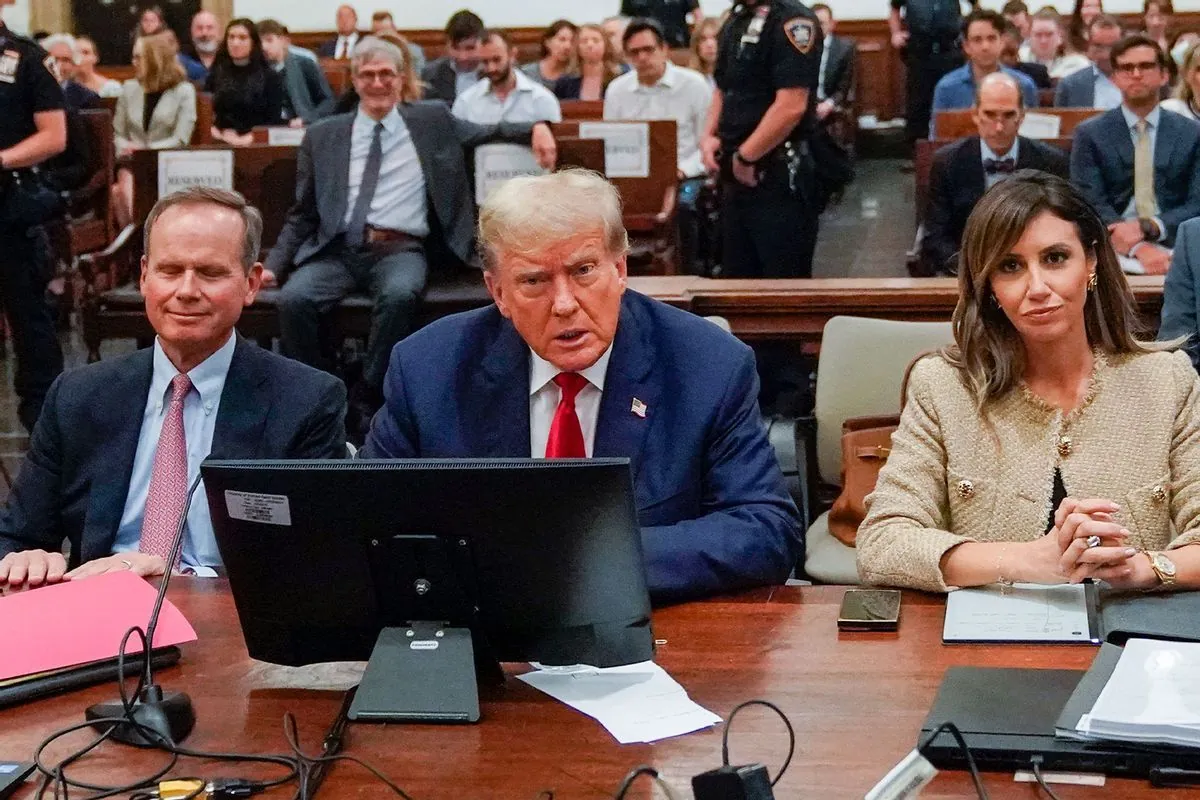In a recent development in the Georgia election interference case, an Atlanta-area judge has dismissed three charges against Donald Trump and his allies. This decision comes as part of the ongoing legal proceedings related to alleged attempts to overturn the 2020 election results in Georgia.
Fulton County Superior Court Judge Scott McAfee issued two rulings on September 12, 2024, addressing various aspects of the case. The judge dismissed two charges against Trump and one against several of his associates, citing the supremacy clause of the U.S. Constitution. This clause, found in Article VI, Clause 2, establishes that federal law takes precedence over state law when conflicts arise.
The dismissed charges pertained to filing false documents, attempting to file false documents, and criminally conspiring to file false documents. These charges were related to a meeting of 16 Trump electors on December 14, 2020, where they cast electoral votes for Trump despite his loss in the state. Georgia, with its 16 electoral votes, was a crucial swing state in the 2020 election.
Despite these dismissals, the core of the case remains intact. Trump now faces eight charges, down from the original 13 outlined in the indictment sought by Fulton County District Attorney Fani T. Willis in August 2023. The case utilizes Georgia's racketeering statute, likely the Georgia RICO Act, to allege a criminal conspiracy to overturn the election results.
"The Supremacy Clause declares that state law must yield to federal law when the two conflict."
The Georgia election interference case is one of four criminal cases currently pending against Donald Trump. Its progress has been complicated by controversies, including accusations of misconduct against the district attorney and the lead prosecutor due to their romantic relationship.
Judge McAfee also rejected a motion from Trump and other defendants to dismiss the entire indictment. This decision maintains the integrity of the case, which alleges a racketeering conspiracy involving efforts to change the 2020 election outcome in Georgia.
The future of the case remains uncertain, potentially influenced by the upcoming presidential election. The timeline for a potential trial is unclear, as legal proceedings have been delayed by various factors, including appeals and controversies surrounding the prosecution team.
This case highlights the complex interplay between state and federal jurisdictions in election-related matters. The involvement of the National Archives, Congress, and federal courts in receiving the contested electoral certificates underscores the national implications of these state-level actions.
As the legal battle continues, it serves as a reminder of the enduring impact of the 2020 election and the ongoing debates surrounding electoral integrity in the United States. The case also demonstrates the critical role of the judicial system in addressing allegations of election interference and upholding constitutional principles.
